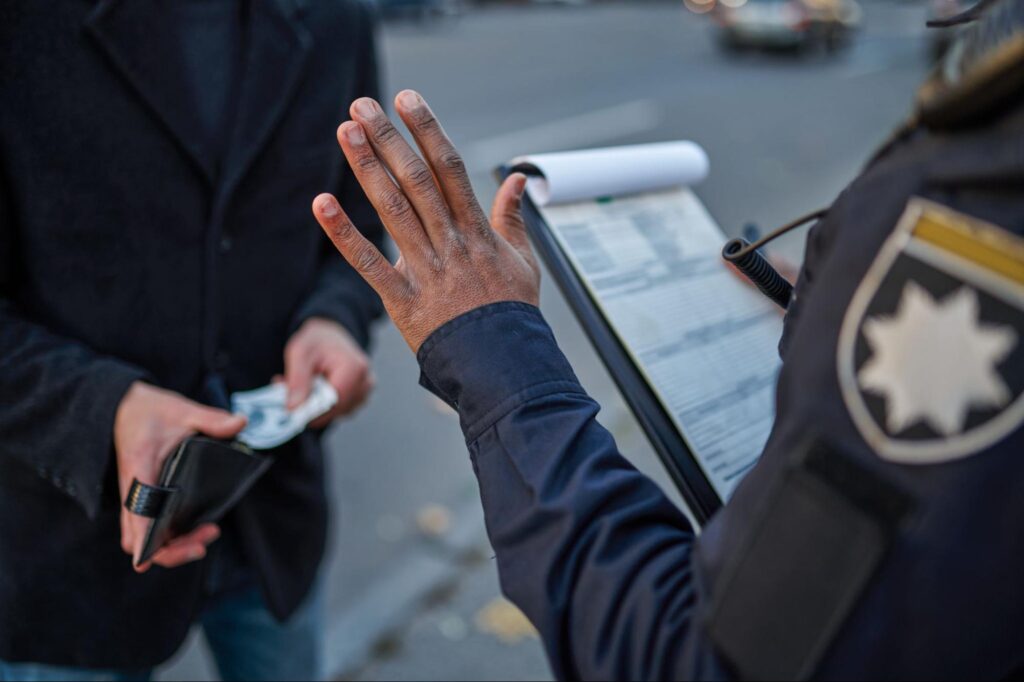
If you need a police report in Georgia, whether for a personal matter or legal purpose, the process can vary depending on the type of report and the department involved. Navigating the steps on how to get a police report in Georgia can seem daunting, but the experts at Howe Law can make it easier for you.
This article will discuss the steps you must follow to obtain a police report in Georgia, including where to request it and what information you may need to provide.
Understanding the Importance of a Police Report
Police reports are essential documents that serve multiple purposes in both legal and administrative contexts. They provide a formal account of incidents handled by law enforcement, detailing findings, observations, and actions taken.
This documentation is critical for individuals involved in accidents, criminal cases, or other events requiring official records. The thoroughness of a police report can often be the difference between a successful resolution and prolonged legal disputes, making it a vital component of the justice system.
Legal Implications of Police Reports
From a legal standpoint, police reports can significantly impact various proceedings, including criminal trials, civil lawsuits, and administrative actions. These documents often contain information that can be used as evidence in court.
For example, they may include witness statements, officer observations, and underlying facts that establish circumstances surrounding an event. The credibility of these reports is often bolstered by the fact that they are created by trained professionals who follow specific protocols when documenting incidents.
Moreover, police reports’ reliability often provides a strong foundation for legal arguments. Attorneys frequently rely on these reports to build their cases, whether defending or prosecuting individuals accused of crimes.
The details contained within can influence jury perceptions and sway judicial outcomes. Thus, understanding how to obtain a police report is crucial for those involved in such situations.
Individuals are encouraged to familiarize themselves with the process of requesting these documents and any potential fees or waiting periods associated with obtaining them.
Role of Police Reports in Insurance Claims
Police reports are pivotal in insurance claims processing. Insurance companies often require documentation from law enforcement to validate claims related to accidents, thefts, or other insured events.
The report can help establish the circumstances of the incident and confirm the involvement of law enforcement. This verification is essential for the integrity of the claims process and protects both the insurer and the insured from fraudulent claims.
Additionally, a police report can expedite the claims process, ensuring prompt handling by insurance adjusters. They rely on the documented facts to assess liability and determine monetary compensation.
This is particularly important for motor vehicle collisions, home burglaries, or any incident requiring insurance payout. In many cases, the details outlined in the police report can lead to quicker settlements, as they provide a clear narrative that claims representatives can easily interpret.
Furthermore, a police report can also help policyholders navigate disputes with their insurance providers. It serves as an official record that can be referenced during negotiations.
Eligibility to Request a Police Report in Georgia

Not everyone has the right to request a police report. Georgia law has specific criteria determining eligibility, ensuring that sensitive information is protected while allowing access to legitimate parties.
Who Can Request a Police Report?
In Georgia, the following individuals typically have the right to request a police report:
- The individual involved in the incident
- Legal representatives or attorneys acting on behalf of the involved parties
- Immediate family members or victims seeking information about the case
- Insurance companies requiring reports for claims processing
These parties must present valid identification and, in some cases, additional documentation to prove their relationship to the incident or the individuals involved. This process helps maintain the integrity of the information and ensures that it is only shared with those with a legitimate need to know.
For example, an attorney may need to provide a retainer agreement or a power of attorney to validate their request, while family members might be asked to show proof of their relationship to the victim or involved party.
Restrictions on Access to Police Reports
While access to police reports is available to certain parties, there are restrictions in place. For instance, ongoing investigations may restrict access to reports pertaining to unsolved crimes or cases still under inquiry. Law enforcement agencies may also withhold personal information, such as addresses and phone numbers, to protect the privacy of individuals.
This is particularly important in cases involving domestic violence or stalking, where the safety of victims can be compromised by the release of such details.
Moreover, certain reports, such as juvenile records or sensitive personal information, may be entirely sealed from public access. It is crucial for requesters to understand these limitations when attempting to obtain a police report.
Additionally, obtaining these reports can vary by jurisdiction, as different counties may have specific procedures and fees associated with the request. Understanding the local regulations can help streamline the process and avoid unnecessary delays, ensuring that those who are entitled to the information can access it in a timely manner.
Detailed Procedure to Obtain a Police Report
The process of obtaining a police report in Georgia can vary based on the method chosen, whether online, in-person, or through the mail. Each method has its own set of requirements and steps that must be followed to ensure a successful request.
Online Request Process
Many law enforcement agencies in Georgia offer online services for requesting police reports. This convenient option allows individuals to fill out an online application form, often found on the agency’s official website. Some key steps in this process include:
- Visit the official website of the respective law enforcement agency.
- Locate the section for public records or police reports.
- Complete the online request form with the required details, including the incident number, personal information, and any other required data.
- Submit the form and, if necessary, pay any associated fees.
After submission, individuals will receive a confirmation notice and may be informed of the expected processing time.
It’s important to note that while online requests are typically processed faster than other methods, the time frame can still vary based on the agency’s workload and the complexity of the report requested.
Some agencies may even provide a tracking system that allows requesters to monitor the status of their applications, adding an extra layer of convenience.
In-Person Request Process
For those who prefer a more direct approach, requesting a police report in person is also an option. This method allows requesters to speak directly with staff and clarify any questions. Here’s how to proceed:
- Visit the police department or agency office during business hours.
- Provide a valid form of identification to the front desk or records office.
- Request the specific police report, giving details such as the incident number and date.
- Complete any required forms and pay any applicable fees.
It’s advisable to contact the agency beforehand to confirm what information is needed to facilitate the process.
Additionally, visiting in person can be beneficial for those who need help understanding the details of the report or have specific questions about the incident.
Some agencies may even have dedicated personnel available to help individuals navigate the records request process and ensure that they receive the information they need efficiently.
Mail Request Process
Requesting a police report via mail is another alternative, especially for individuals who may not live near the law enforcement agency. The steps include:
- Obtain the police report request form from the agency’s website or by calling for information.
- Complete the form, ensuring all required details are included.
- Enclose a copy of valid identification and payment for the fee.
- Mail the completed form, identification, and payment to the designated law enforcement agency address.
It is essential to check postage rates and expected delivery times to avoid delays in processing the request. Furthermore, when mailing a request, it’s wise to send the documents via a trackable mailing service to ensure they arrive safely and to have proof of submission.
This method can take longer due to postal processing times, so planning ahead is crucial, especially if the report is needed for legal purposes or other time-sensitive matters. Some agencies may also allow expedited processing for an additional fee, which can be useful for urgent requests.
Fees Associated with Obtaining a Police Report
Obtaining police reports in Georgia often incurs fees, which can vary based on the agency and the type of report requested. Understanding these fees ensures individuals are prepared and informed.
Standard Fee Structure
Most law enforcement agencies in Georgia have a standard fee structure for police reports. Generally, the costs may include:
- A base fee for the report, which can typically range from $5 to $15.
- Additional charges for extra pages or specialized documents.
It’s crucial to consult the agency’s website or contact them directly to ascertain the specific fees applicable to the desired report. Some agencies may also provide an online portal where individuals can submit requests and view fee schedules, making the process more transparent and accessible.
Additional Charges and Waivers
Additional charges may apply in certain cases. These can include processing time fees, exorbitant copying costs for larger files, or requests that require extensive records searches. However, some agencies may offer waivers or reduced fees based on the requestor’s circumstances, such as for victims of crimes or low-income individuals.
Understanding these potential costs can help facilitate the request process and avoid unexpected expenses. Moreover, some agencies may have specific policies regarding the types of reports that can be obtained without charge, particularly for individuals involved in ongoing investigations or legal proceedings.
Being aware of these policies can empower requestors to advocate for their rights and ensure they receive the necessary documentation without undue financial burden.
Additionally, the method of obtaining a police report can also influence the fees. For instance, in-person requests may incur different costs than online submissions or mail requests.
Some agencies charge a convenience fee for online processing, while others offer discounts for bulk requests, such as those made by legal firms or insurance companies. Understanding these nuances can help individuals navigate the system more effectively and potentially save money.
Time Frame for Obtaining a Police Report

The timeframe for receiving a police report can vary depending on the method of request, the agency’s processing capacity, and any specific circumstances surrounding the report.
Expected Waiting Period
Generally, once a request is submitted, individuals can expect a waiting period of a few days to a few weeks. However, online requests may be processed more quickly than those sent by mail or in person, especially if the necessary information is readily available.
Factors that can affect this timeline include the volume of requests the agency receives, the complexity of the cases involved, and any ongoing investigations that might necessitate withholding information. Additionally, certain jurisdictions may have specific regulations that dictate how quickly reports can be released, which can further influence the waiting period.
For example, some states have laws that require police departments to respond to requests within a certain number of business days, while others may allow for longer processing times. Understanding these local regulations can help individuals set realistic expectations for when they might receive their report.
Expedited Requests and Their Conditions
Some agencies may offer an expedited request process, which allows for quicker access to reports under certain conditions. Typically, these requests are reserved for cases where immediate access is crucial, such as ongoing investigations or urgent legal matters.
To qualify for expedited processing, individuals may need to provide a justification for the urgency, along with any supporting documentation. Understanding these conditions can be beneficial for those needing timely access to reports.
It’s also worth noting that not all agencies will have a formal expedited process in place, so individuals should inquire directly with the department handling their request to determine if such options are available.
In some cases, speaking with an officer or a records clerk may provide insights into the best approach for obtaining a report quickly, especially if the request is related to a critical situation like a court date or an impending deadline for legal action.
Conclusion
Obtaining a police report in Georgia is a structured process that requires an understanding of eligibility, costs, and the procedural steps involved.
By following the outlined methods and being aware of the associated fees and expected timelines, individuals can effectively obtain the necessary reports for legal, insurance, or personal use.
Whether through online, in-person, or mail requests, staying informed empowers individuals to navigate this essential aspect of law enforcement documentation efficiently.
If you need assistance with obtaining a police report or have questions about your specific situation, call today for a free consultation at 888-559-7033. We’re available 24 hours a day, 7 days a week. Visit Howe Law for more information.
Related Articles


























































